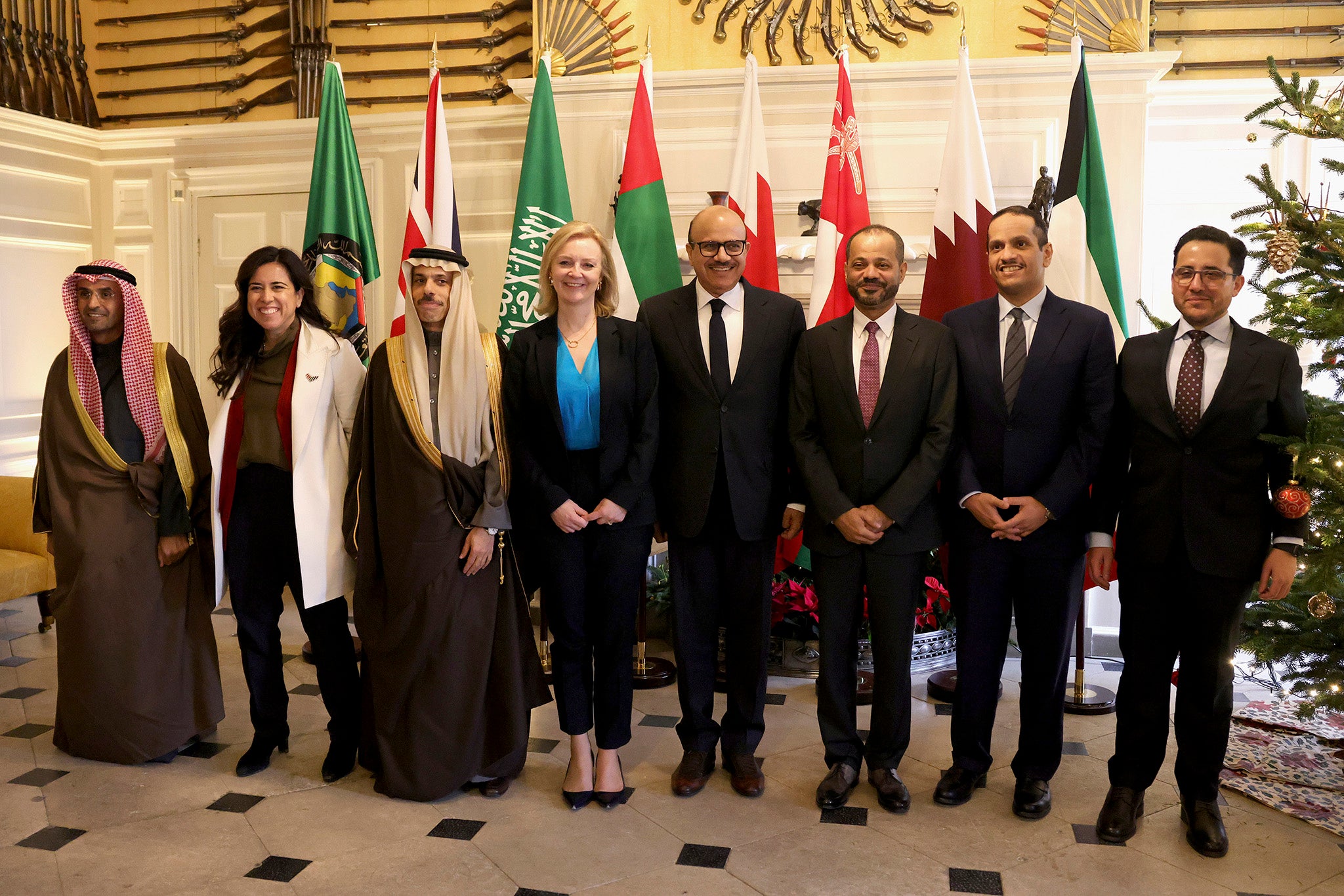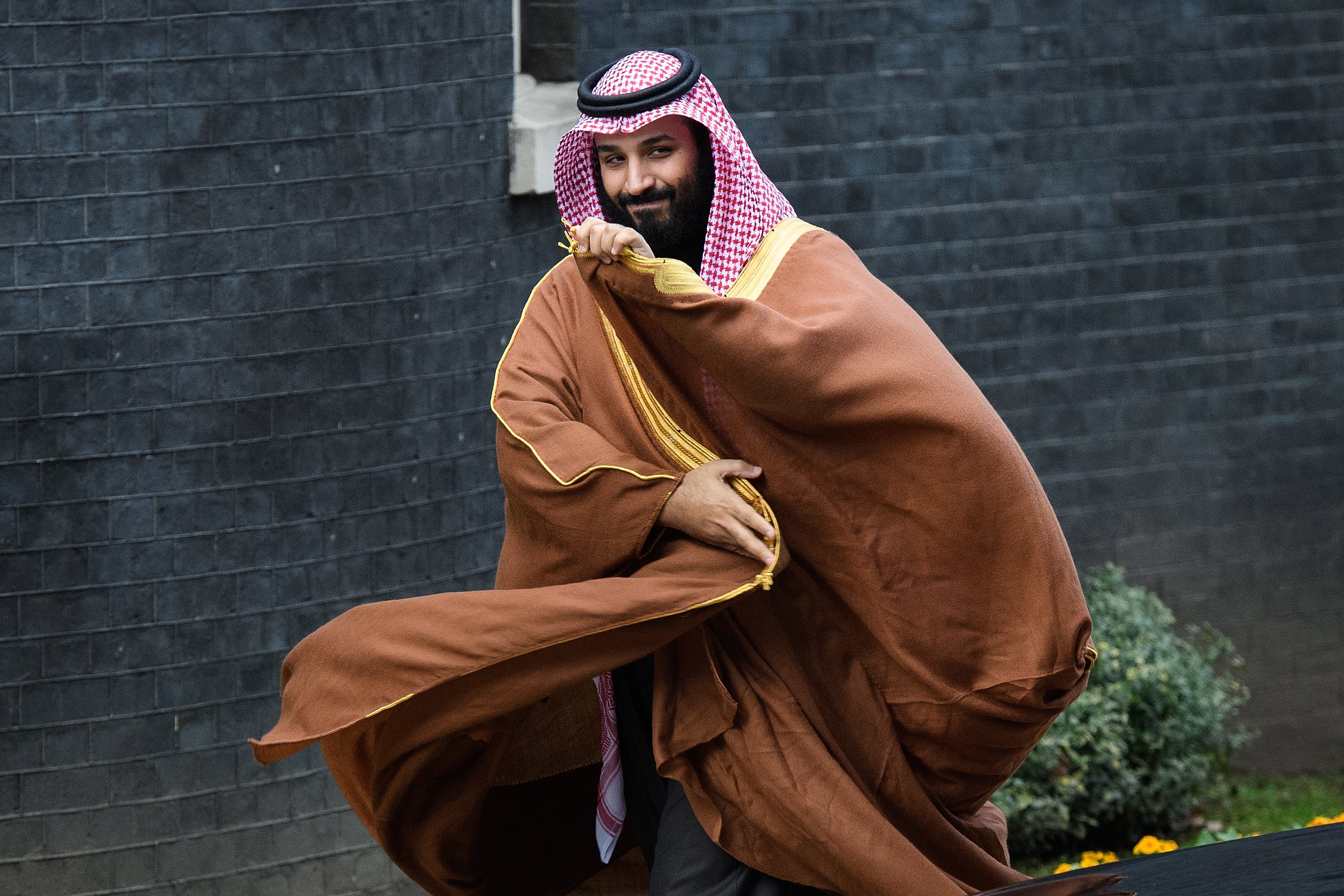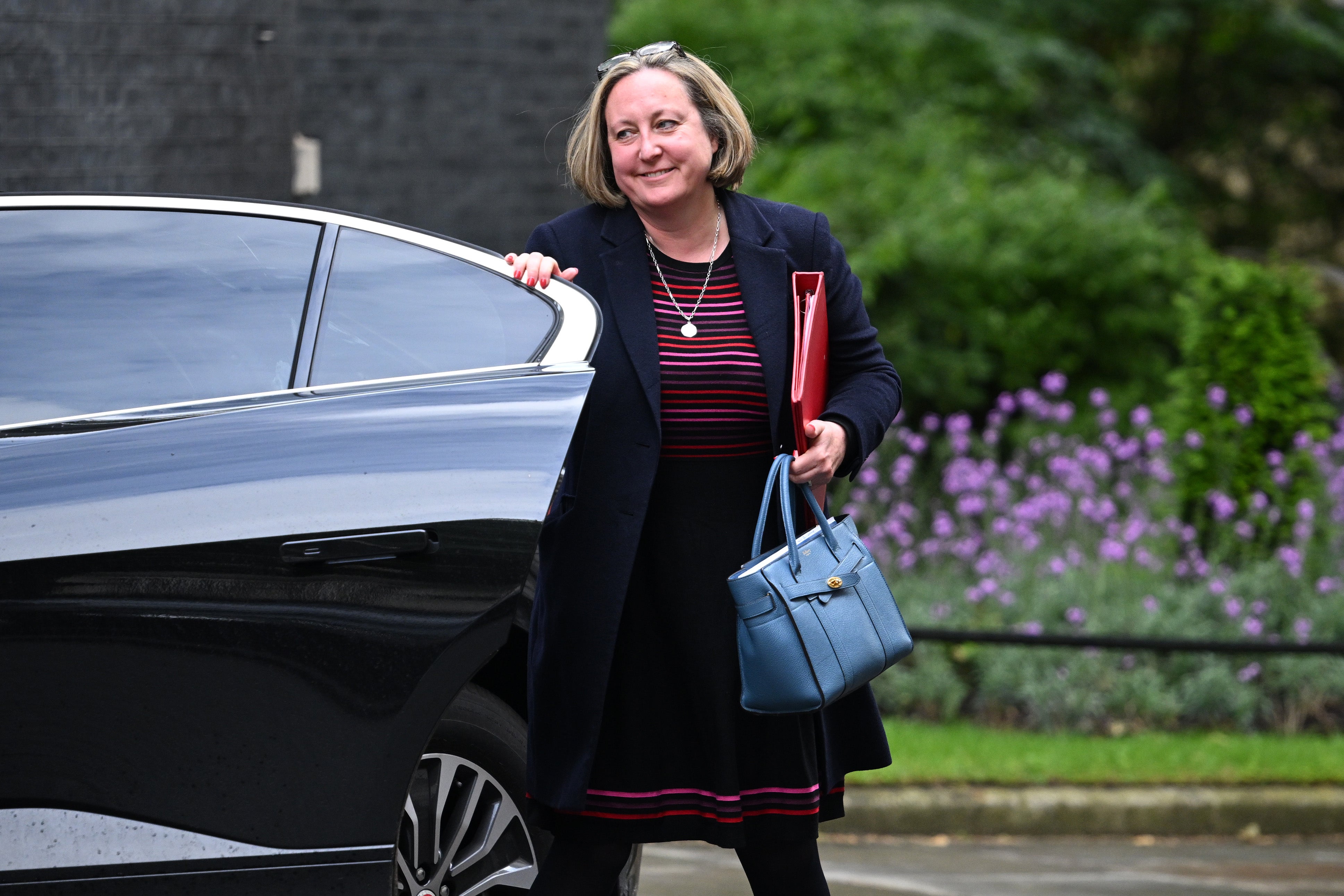The government is no longer planning to use its Brexit trade deals to spread and enforce human rights around the world, a leaked letter from the international trade secretary has revealed.
Writing to MPs, Anne-Marie Trevelyan said human rights would be kept out of trade talks, and that she believed that “free trade agreements are not generally the most effective or targeted tool to advance human rights issues”.
The dramatic change in approach comes as the UK is attempting to sign a deal with Gulf countries including Saudi Arabia, Bahrain and the United Arab Emirates – all renowned for their poor human rights records.
In October last year, Ms Trevelyan told the House of Commons that trade “will not come at the expense of human rights” and that talks on free trade agreements would create an “opportunity to open discussions” on such issues.
And as early as October 2020, Liz Truss, who is expected to become prime minister next month, gave a landmark speech in which she said the UK’s “values-driven” trade policy would be used to “spread our fundamental values”, such as human rights, around the world.
But cracks have started to appear in this approach, and in June this year, MPs raised concerns after the government quietly dropped “human rights” and “rule of law” from a list of proposed objectives in trade deal talks with the Gulf Cooperation Council.
This week, the international trade secretary wrote back to the MPs and spelt out a very different policy from the one that the government has previously advocated.
“The UK is a leading advocate for human rights around the world, and the government remains committed to the promotion of universal human rights,” she said in the letter, dated 23 August and seen by The Independent.
“The Foreign, Commonwealth and Development Office leads this effort within the UK government. This is undertaken separately to negotiations on free trade agreements.

“While aspects of trade policy can provide the opportunity to address other issues in bilateral relationships, free trade agreements are not generally the most effective or targeted tool to advance human rights issues.”
The revelation provoked an angry reaction from human rights campaigners, who said that ditching human rights protection from free trade deals would give succour to autocrats.
“This response by the trade secretary confirms our biggest fears: that human rights will not even be paid lip service in the upcoming trade agreement with the Gulf,” said Sayed Ahmed Alwadaei, director of advocacy at the Bahrain Institute for Rights and Democracy.
“The government shamelessly refuses to include even a mention of human rights in their trade deal, despite dealing with some of the most abusive states on the planet. The bottom line is, Gulf dictators will be confidently reassured that when it comes to business with the UK, human rights will be left completely off the table.”
Peter Frankental, Amnesty International UK’s economic affairs director, said the government was “sending a terrible message to other countries” about “how little the UK appears to value human rights and freedoms when trade deals are at stake”.
“Any notion that trade can somehow be cordoned off from human rights issues ignores the grubby reality that multinational corporations all too often profit from lax labour laws, conditions amounting to modern slavery, and widespread environmental harm,” he said.
“Once again, we appear to have a trade policy which runs counter to the UK’s stated foreign policy goals of championing openness and free speech, reducing conflict and environmental degradation, and ending modern forms of slavery.”

Many free trade agreements around the world, such as the one the UK signed with the EU, include provisions to ensure that countries uphold basic human rights standards – with formal clauses to make them legally enforceable.
As well as their ethical dimension, the clauses are intended to make sure that countries cannot undercut each other by violating rights and allowing exploitation – for instance with de facto slave labour.
Yet the UK is desperate to sign trade agreements with countries around the world, to illustrate what it says are the benefits of leaving the EU customs union – and human rights are a sore point for some of the countries with whom Britain wants to make deals.
Last year, when he was foreign secretary, Dominic Raab told officials that “restricting” trade because of lower human rights standards would mean that Britain was “not going to do many trade deals with the growth markets of the future”.
The shift in government policy is stark when compared with statements by ministers earlier on in their quest for free trade agreements. In October 2020, Ms Truss, the then trade secretary, gave a landmark Chatham House speech titled “[Britain’s] vision for values-driven free trade”.
She said Britain was “learning from the twin errors of values-free globalisation and protectionism”, and that the government was “instead rooting our approach for global free trade in our values of sovereignty, democracy, the rule of law and a fierce commitment to high standards”.
“In control of our trading future, we will work with like-minded democracies to support freedom, human rights and the environment while boosting enterprise by lowering barriers to trade,” she said.
“The UK did not leave the European Union to have another country’s values thrust upon it. We support the right kind of globalisation, based on shared values, as we help lead the fight for free markets, free societies, human rights and a greener world.”
Ms Truss went on to say that “the values driving our newly independent trade policy are well known”.
“Our friends know how strongly freedom has delivered and driven the UK’s national story, whether they think back to the historic advancement of human rights under Magna Carta, the abolition of the slave trade, or the development of free market economics,” she said at the time.
“The British people care deeply about fairness, decency and liberty. We can best spread our fundamental values – freedom, democracy, human rights and protecting our natural environment for the future – by working with our friends and family across the world.”

Even as recently as October 2021, trade policy appeared to at least pay lip service to human rights as a key part of trade negotiations. Asked by Labour MP Cat Smith “what recent discussions she has had with UK trade partners on inserting clauses on human rights into future trade deals”, Ms Trevelyan said:
“The government are clear that more trade will not come at the expense of human rights. The UK will continue to show global leadership in encouraging all states to uphold international rights obligations and to hold to account those who violate those rights. By having stronger economic relationships with partners, we have the opportunity to open discussions on a range of issues.”
Answering another question, from Tory MP Peter Bone, about whether free trade agreements could help improve human rights in supply chains, Ms Trevelyan said: “It is important that we make sure not only that we use the power of trade to build relationships, as I said, but to give our businesses that want to work globally through supply chains the best tools and protections that they might need to ensure that they have authority with countries where the improvement of the position of the supply-chain workforce, and, indeed, the protection of other human rights, is critical.”
Asked to comment on Ms Trevelyan’s leaked letter, a government spokesperson said: “The UK is a leading advocate for human rights around the world, and the Foreign, Commonwealth and Development Office leads this effort within the UK government.
“We will continue to encourage all states to uphold international human rights obligations, and hold those who violate or abuse them to account.”
But Sarah Olney, the Liberal Democrats’ business spokesperson, said it was “crystal clear how little regard this Conservative government holds for the respect of human rights on the international stage”.
She said: “After failing to guarantee British standards on animal welfare and environmental protection in the FTA with Australia, the government are now sinking even lower, and are set to finalise a trade deal with Gulf Cooperation Council countries that appears to make no reference to their abysmal record on human rights.”
She added that there should be “a set of minimum standards for benchmarking future trade agreements; to include human rights, conflict and oppression, environmental, labour and safety standards”.







Join our commenting forum
Join thought-provoking conversations, follow other Independent readers and see their replies
Comments